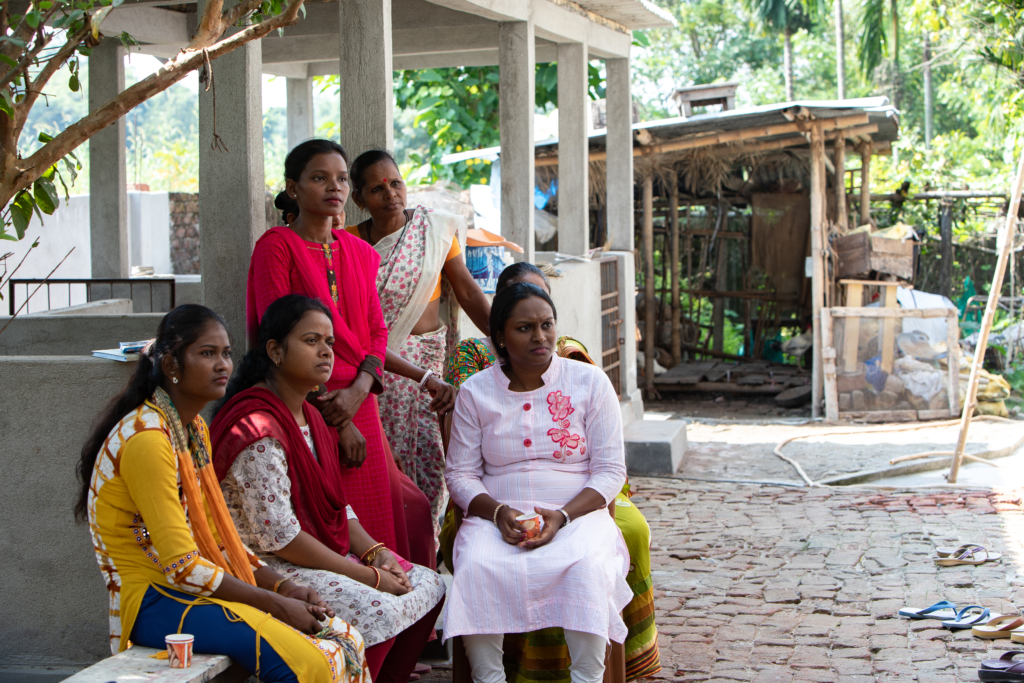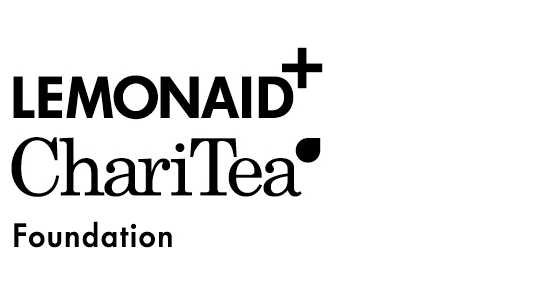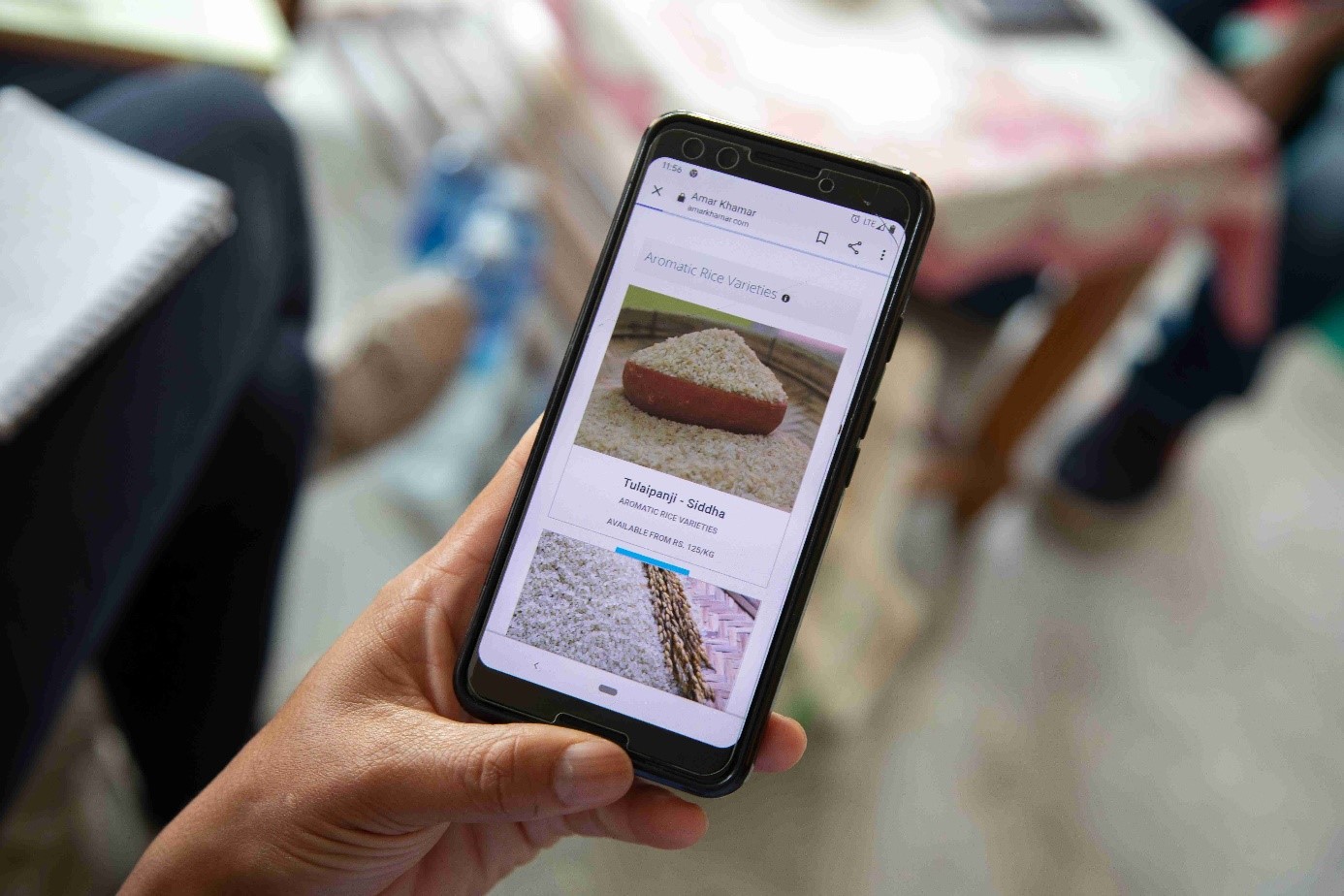Through clever use, technology can contribute to overcome obstacles that seemed invincible for a long time. This is exactly what the organisation SOCEO accomplishes for its project participants. The aim of their work is to provide women from different villages in the Darjeeling district with improved market access through entrepreneurship training and the use of an online platform. After a very successful one-year pilot phase, the project will continue to be funded for another three years by the Lemonaid & ChariTea Foundation. Building on the experiences of the last year, the number of participants is to be increased and the activities and products further diversified.
Located at the foot of the Himalayas, the Indian region of Darjeeling is known worldwide for its tea. At the same time, it is considered one of the least economically developed regions in India. This is due to various causes: in addition to difficult geographical and climatic conditions, ethnic conflicts and the associated political instability also impede the positive developments of the region. Moreover, a recurring global pattern is emerging in Darjeeling: large, influential companies with access to resources and supra-regional markets are the main beneficiaries of the economic boom, which can certainly be felt in the small mountainous region in north-eastern India.
For example, the local, often marginalised population receives little to nothing from the booming tourism, which is mainly concentrated in the two centres of Darjeeling and Kalimpong. The situation is similar in the sale of tea: smallholders often do not have the necessary means and resources to process harvested tea leaves into higher-quality products or to transport them to larger markets. Often, for them the only thing left to do is to sell their yields at low prices on local markets or to intermediaries. They usually lack the financial capacity to invest in suitable machinery or to transport their produce to markets with reasonable prices. Thus, access to a large part of the value chain is denied to Darjeeling’s smallholder farmers.
As is often the case, it is the women in Darjeeling who are most affected by the prevailing economic inequalities. Shaped by social norms, it is often the responsibility of women to take care of the household and the family. This means that they – in contrast to the men from the region – rarely have the opportunity to look for work in nearby towns.
Improving livelihoods through entrepreneurship
These are the challenges that the non-profit organisation SOCEO is working on. In 2019, they successfully piloted a project that demonstrated how investing in entrepreneurship training and the introduction of technological innovations can contribute to an improved market access and more empowerment for the women in the region. Together with the women in Madhovita, they have set up a range of machines for processing agricultural products. In addition to rice and spice mills, these include separating machines and centrifugal pulverisers for the further processing of high-quality spices. This possibility for further processing has contributed significantly to improving the prices achieved for the agricultural products of the women. In 2019, a total of over 7.5 tonnes of rice, 1 tonne of maize flour, 550 kg of rice flour, 100 kg of wheat flour, 100 kg of chickpea flour, 76 kg of turmeric, 6 kg of cumin and 4 kg of cinnamon powder were thus processed at the two sites together.
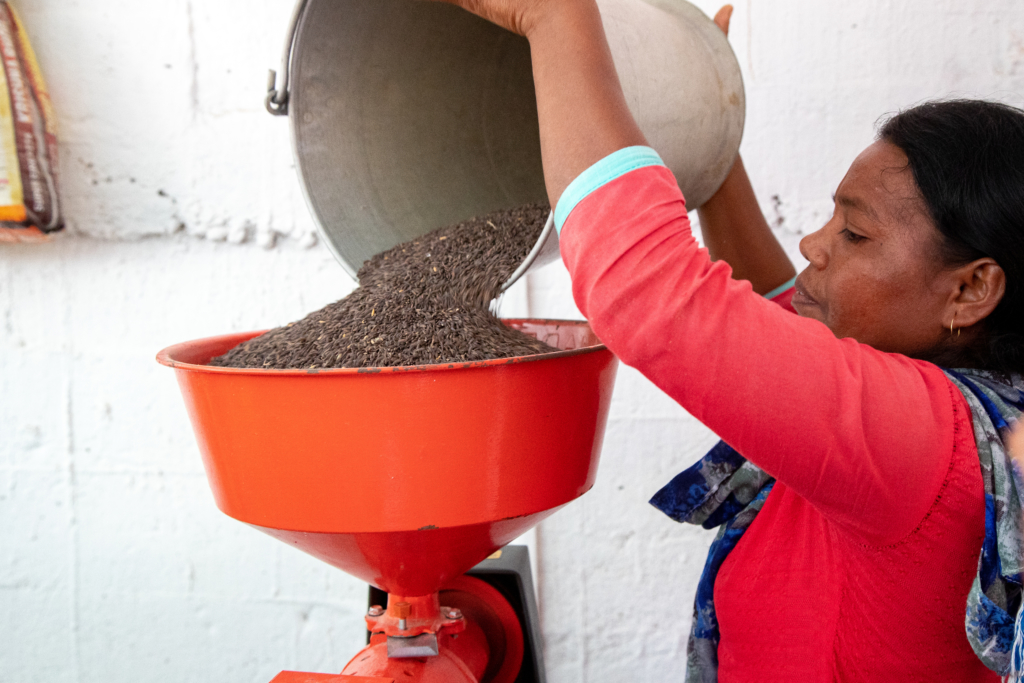
Some of the processed products the farmers sell at local markets. However, since last year a significant part has been sold via the newly established e-commerce platform Amar Khamar. The high-quality products can be ordered by customers from all over India via this online platform. The women in Madhovita act as a hub. 8 project participants were trained last year to carry out the necessary steps of logistics and distribution. In addition, the 300 women farmers learned the most important entrepreneurship basics in a two-day course. The online platform Amar Khamar is an enormously important new sales channel for the women.
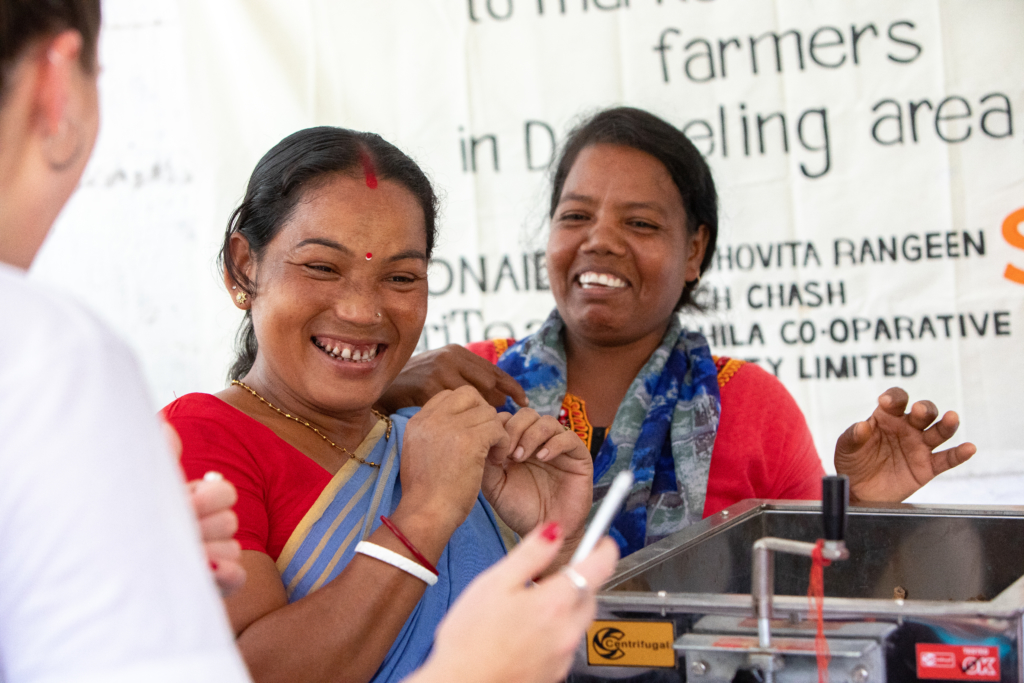
Success of the first project phase inspires further women
Particularly important from the successful first project phase in this context are the lessons learned. Agriculture is a cyclical process that requires a lot of time and is strongly dependent on the seasons. Based on the experience gained, the duration of the project shall be extended in order to be able to work more intensively with the farmers on their agricultural processes. In a continuation of the pilot project, it is also expected to be able to prove a significantly higher income for the women. Unfortunately, the first project phase was too short for this. However, the successes achieved so far in terms of reduced processing costs, improved market access to higher-value markets and more efficient use of resources have already created a good basis for this.
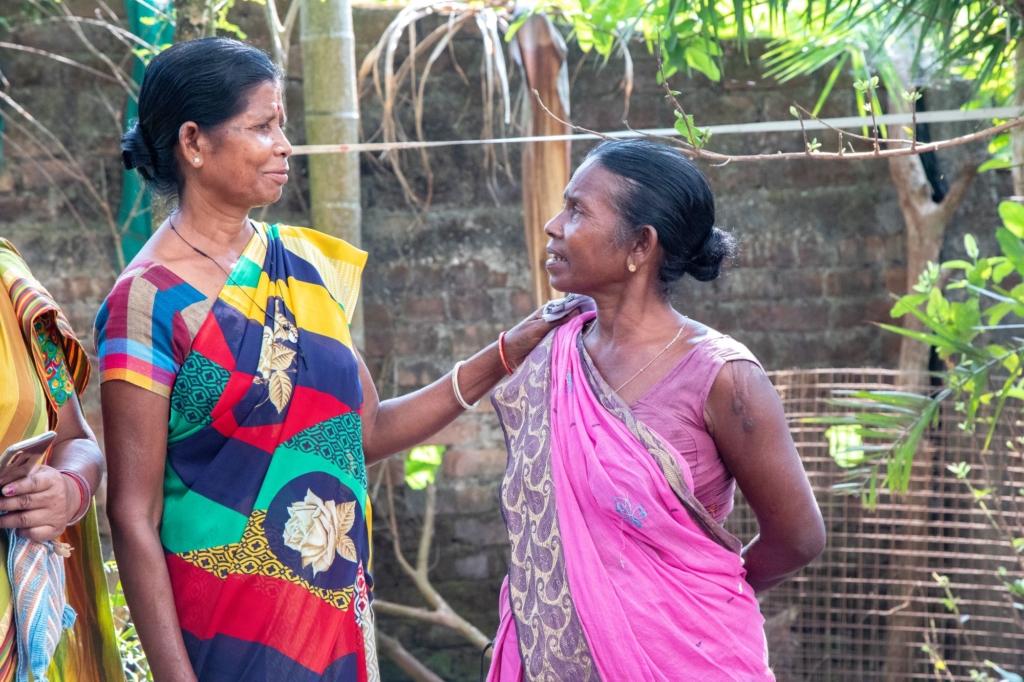
In a second phase of the project the communities of women in smallholder farming structures in the Indian district of Darjeeling will continue to be economically and socially strengthened. Only this time the scope will be enlarged and the areas of activity expanded. The new project cycle is designed for 3 years. In addition to the 300 farmers from the first round, 200 new project participants from the neighbouring villages of Kalimpong and Gorubathan will be included. Based on the pilot project, the agricultural activities of the participants will be further improved and diversified in the second project cycle.
In order to enhance the knowledge of agricultural processes among the farmers, 15 of the women that have already been trained will receive a “training of the trainer” in natural cultivation methods. These women are supposed to act as multipliers and pass on the acquired knowledge to the other participants. This will ensure that the know-how gained will be sustained within the community.
New machines and a wider product range
In order to create alternative sources of income, new branches of rural technologies for a wider range of products are being introduced alongside existing agricultural activities. They are selected based on whether they are feasible, viable and in market demand at the target location. 450 participants are selected to receive further training in specialisations such as beekeeping, medicinal herbs, spice cultivation, bamboo nursery, animal husbandry and/or ghee production (special clarified butter), depending on their interest and location.
In addition to the variety of products, further machines are to be installed that enable further processing of the agricultural products and thus create added value. A total of four new machines will be purchased. Three of them will be used to dry and pulverise the spices. Another machine will process the medicinal herbs into natural aromatic oils. They are in high demand on the market and thus represent a lucrative product.
More outreach for the farmers
The new women will again participate in the basic course on agricultural entrepreneurship. This proved to be a particularly important and appreciated activity in the first cycle. In addition, a few selected women will participate in various fairs and food pop-ups each year. On those they can promote their products and reach more customers in urban areas. Apart from the economic benefits, this is thought to promote the independence and self-confidence of the women as they come into direct contact with the customers.
Promote future independence
With the funding from Lemonaid & ChariTea Foundation the project covers most of the costs for the different trainings and the personnel costs arising. It also covers the expenses for the diversification equipment, the purchase and installation of the new machines, and the transport and accommodation of the participants during the promotional events.
In the long term, the project is designed to be continued independently by the women in the region and to promote nature-friendly agricultural practices. The acquired knowledge as well as the entrepreneurial aspects of the project should improve the financial situation of the project participants. This should contribute to both maintaining the installed machinery and expanding the entrepreneurial activities.
Already in the first round of the project, the participants expressed their empowerment by improving their skills, knowledge and livelihood. On a society-wide level, the project aims to help women in rural structures to improve both their social and economic status in the long term. SOCEO’s work supports them in developing their potential and in gaining the market access and earnings they deserve.
